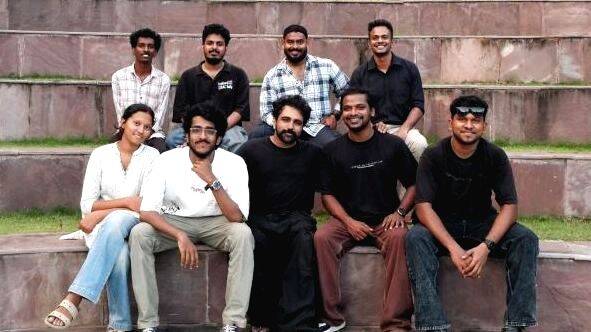

THIRUVANANTHAPURAM: ‘Naeth’, a clothing brand producing shirts, T-shirts, and vests from recycled plastic bottles, is set to hit the market next month. The venture is the brainchild of CET Renewable Energy M.Tech student Vishnu Girijagopal (27) and his friend G.S. Jithu (27), who have pioneered the production of garments from PET (polyethylene terephthalate) bottles in Kerala.
The technology, known as sustainable fibre engineering, converts plastic into yarn. To ensure softness and breathability, bamboo pulp is mixed with the fibre. Plastic bottles such as mineral water, Pepsi, and 7Up are collected during coastal cleaning drives. After cleaning, the plastic is processed at a factory in Tiruppur, where it is turned into pellets. These are then heated with bamboo pulp, spun into yarn, and finally dyed and designed into garments. Naeth’s office is based in Vazhuthacaud.
Vishnu had earlier worked on a mini-project during his M.Tech on creating a PET-based clothing brand, which later evolved into this venture. Hailing from Kanjiramppara, he is the son of Venugopal and Girija and has a brother, Veeraj. Jithu, from Pettah, is the son of Gopakumar and Sheeba. He has a brother, Gopikrishna.
Safe for the body
Since bamboo pulp is blended with the plastic, the fabric does not cause harm to the body. It also meets Global Recycled Standard guidelines and has cleared medical testing. The clothes will be priced affordably for the public. Naeth was first showcased at the Kerala Innovation Festival in Kochi, and a patent application has already been filed.
Vishnu and Jithu studied mechanical engineering together at Mohandas College of Engineering, Anad. After graduating in 2019, Vishnu worked at an interior design company, which he later left to join Jithu in Tiruppur. With the support of Binoy, a Malayali entrepreneur, they started the T-shirt brand ‘Naeth’ in 2022. Once the company became profitable, they decided to expand it as an eco-friendly clothing brand.
“Kerala’s hospitals alone throw out 80 tonnes of plastic bottles every day. From that waste, 16,000 T-shirts can be produced,” says Vishnu.